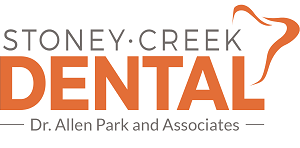
Posted on January 22, 2024
There are many illnesses that will show early symptoms in your mouth. Part of your regular dental checkups will include a screening for oral cancer – a disease that can be deadly but still has a high survival rate if caught early enough.
Since April is oral cancer awareness month, it’s a good time to understand how this disease can be detected and treated. Here’s how your dentist will complete the screening for oral cancer and what they’re looking for.
Who is at risk for oral cancer?
Your dentist will check for what is known as abnormal cell growth in your mouth, tongue, lips, or throat. People over 45 years old are the most at risk for this type of cancer; however, people who smoke, consume a lot of alcohol or have a poor overall diet have a higher risk of developing this type of cancer.
The good news is that for this type of cancer, if it’s detected early, it can be successfully treated, and patients can continue to live a very healthy and happy life.
How is screening for oral cancer conducted?
An experienced team of dental care professionals will check your mouth, tongue, lips, and throat for any symptoms of oral cancer. Symptoms can include coloured patches, lumps, bleeding or numbness in specific areas. They may also investigate any issues with tasting or swallowing.
If there are any risk factors or areas of concern, your dentist will have a chat with you about them and any kind of prevention you can do to help lower the risk.
What happens if your dentist suspects oral cancer?
Finding an issue that your dentist believes to be potentially cancerous can be scary, but having your dental team detect it early can give great results in successfully treating the cancer.
To confirm any suspicions, your dentist may need to biopsy the area they’re concerned about. They may also do a series of imaging tests (like x-rays, MRIs, or ultrasounds). A patient may also be referred to a specialist if there is a result that your general dentist can’t treat appropriately.
Depending on the results of these tests, there may be some additional treatment (like chemotherapy or radiation) or even surgery to ensure a more successful outcome. These options will be discussed with the patient, and a treatment plan will be developed.
Early detection is key.
Like with most forms of cancer, detecting oral cancer early is key in getting the most successful outcome and results of treatment.
One of the best ways to detect this is by ensuring that you visit your dentist on a regular basis and always go to your checkups and oral hygiene appointments.
Contact Stoney Creek Dental today.
When was the last time you had a checkup? If you can’t remember, it’s probably time to give your dentist a call. April is oral cancer awareness month, so now is the right time to make that appointment. Contact Stoney Creek Dental today to set one up.
